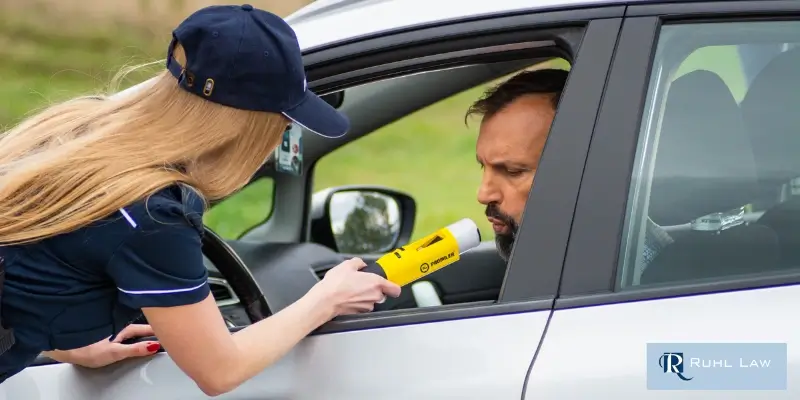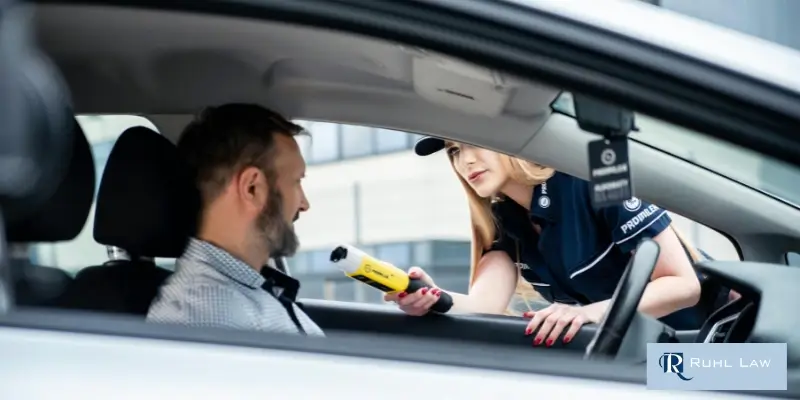What Happens if You Refuse a DUI Test in Florida?

What Happens if You Refuse a DUI Test in Florida?
While refusing to take a DUI test in Florida may seem like a good strategy to avoid incriminating yourself, it can actually come with devastating consequences. Florida is continuing to enforce strict penalties for any drivers who refuse to take a blood, urine, or breath test upon arrest for a DUI. But understanding the particular repercussions is crucial to answer the question, what happens if you refuse a DUI test in Florida?
Florida’s Implied Consent Law
Under Section 316.1932 of the Florida Statutes, each person who is operating a vehicle in Florida is considered to have given their consent to submit to a lawful physical or chemical test if they’ve been legally arrested for driving under the influence. These chemical tests include urine, blood, and breath testing. This is known as Florida’s implied consent laws, meaning that anyone on the roads in Florida automatically agrees to comply with a DUI investigation. These chemical test requirements are part of Florida’s comprehensive approach to DUI enforcement that includes strict penalties for violations.

What Happens if You Refuse a Breath Test in Florida?
If you refuse to submit to a breath test, not only may you be facing administrative penalties, but also criminal ones. Penalties are as follows:
- First refusal. A first refusal can lead to an immediate confiscation of your driver’s license and an administrative driver’s license suspension of up to one year. Per Section 322.2615, F.S., if eligible, you may be issued a 10-day temporary driving permit, and the suspension begins on the day that the notice is issued.
- Second or subsequent refusal. Under Section 316.1939, F.S., a second or subsequent refusal leads to first-degree misdemeanor charges, punishable by up to $1,000 in fines and one year in jail. It also leads to an 18-month administrative license suspension.
It’s important to note that before the state is able to convict you for a second-time DUI refusal, it must be able to prove that you were lawfully arrested, adequately advised of all the associated penalties, and had been previously suspended for a refusal.
How Common Are DUI Test Refusals in Florida?
According to the National Highway Traffic Safety Administration (NHTSA), from 2018 to 2022, refusal rates for submitting to a breath test in Florida have increased slightly but generally hovered around 35%. For example, in 2022, there were a total of 42,947 DUI citations and 15,199 refusals, leading to a refusal rate of 35.39%.
With Florida seeing 363 alcohol-related traffic fatalities in 2023, at a rate of 1.6 per 100,000 residents, the government is working to discourage any behavior that hinders DUI offense enforcement. Despite campaigns to educate the public, the refusal rates in Florida still remain alarmingly high, possibly due to misconceptions that a refusal can help a person avoid conviction.
Administrative vs. Criminal Penalties
Two separate tracks of consequences begin when an individual is arrested for a DUI. According to administrative penalties, the offender’s driver’s license is subject to immediate suspension, with them having the possibility to request a formal review within 10 days to contest it. Depending on prior offenses, the defendant may be eligible for a hardship license.
A second DUI test refusal escalates to a first-degree misdemeanor—punishable by jail time—on top of an 18-month license suspension. As the consequences of penalties can be devastating just for refusing a DUI test, it’s crucial to work with a skilled and experienced criminal defense attorney who can help you fight back against any charges or hearings you may be facing.
![What Happens if You Refuse a DUI Test in Florida? [2025] What Happens if You Refuse a DUI Test in Florida? [2025]](https://swfloridacriminallaw.com/wp-content/uploads/2025/02/refuse-dui-test-florida.webp)
FAQs About DUI Test Refusal Law in Florida
Can I Legally Refuse a Breath Test in Florida?
Yes, you can legally refuse a breath test in Florida, but it will trigger an automatic administrative suspension of the license and could possibly lead to criminal charges. If you have refused a breath test during a lawful DUI arrest, it’s highly encouraged to work with an experienced attorney who can help you fight your charges.
What Happens if I Refuse the Test for the First Time?
If you’re refusing a DUI test for the first time, you could be dealing with a license suspension for one year and will receive a 10-day permit. Any refusal to take a chemical test could also potentially be used in court against you during criminal proceedings. If you refused the test and got arrested, you only have 10 days to contest the suspension and fight to preserve your driving privileges.
Do You Still Get Arrested if You Refuse?
Yes, you can still be arrested for a DUI offense, even if you refuse the test. Law enforcement officers may be able to arrest you based on unsteady posture, slurred speech, driving behaviors that are erratic, smells of alcohol or marijuana, and failed field sobriety tests. Prosecutors are still able to prove a DUI through other forms of evidence, such as observations from law enforcement, apart from using chemical test results.
Is Refusing a DUI Test a Criminal Offense in Florida?
Whether refusing a DUI test is a criminal offense in Florida is dependent on the number of times a test has been refused before. While a first refusal cannot lead to criminal charges, a second or subsequent refusal is a first-degree misdemeanor that can be punished by up to one year in jail. This is separate from any criminal charges that may be brought forward for driving under the influence.
How Can a DUI Defense Attorney Help Me if I Have Refused a Breath Test?
If you’ve refused a breath test in Florida, a skilled DUI defense attorney can help you by both fighting for a license reinstatement during administrative proceedings and representing you in administrative court. They can leverage crucial defense tactics, such as proving an unlawful traffic stop or arrest, citing inconsistency of the prosecution’s evidence, and more, to minimize the negative repercussions of your charges and arrest. An attorney can challenge the legality of your stop or arrest, which is critical since fighting a DUI charge successfully often hinges on procedural errors.
Reach Out to an Experienced Florida DUI Defense Lawyer Today
As nearly 35% of all DUI suspects in the state refuse to take a test each year, Florida law enforcement is coming down with increased enforcement and harsher penalties. This makes it more urgent now than ever to work with an experienced Florida DUI defense attorney. The skilled legal team at Ruhl Law, P.A. can help you if you or someone you know has refused a DUI test. Contact us today so we can help you explore your options and safeguard your rights.
© 2026 Ruhl Law, P.A. • All Rights Reserved.


